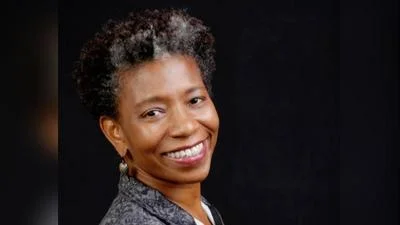Kalan Haywood, Wisconsin State Representative for 16th District | Official website
Kalan Haywood, Wisconsin State Representative for 16th District | Official website
According to the Wisconsin State Legislature's official website, the bill was described as follows: "prohibiting hedge funds from acquiring single-family homes in this state. (FE)".
The following is our breakdown, based on the actual bill text, and may include interpretation to clarify its provisions.
In essence, this bill aims to prohibit hedge funds from acquiring single-family homes in Wisconsin. A hedge fund is defined as an organization managing pooled investor funds with a net value or assets of $50 million or more and is not a tax-exempt charity under the Internal Revenue Code. If a hedge fund acquires or owns, wholly or partly, a single-family home in violation of this bill, the ownership interest is forfeited to the state, with the Wisconsin attorney general responsible for enforcement. This prohibition applies to ownership interests in homes acquired on or after the first day of the first month following the bill's effective date, with pre-existing ownership interests unaffected.
The bill was co-authored by Senator Sarah Keyeski (Democrat-14th District), Representative Clinton M. Anderson (Democrat-45th District), Representative Mike Bare (Democrat-80th District), Representative Elijah R. Behnke (Republican-6th District), Representative Brienne Brown (Democrat-43rd District). It was co-sponsored by Senator Tim Carpenter (Democrat-3rd District), Senator Kristin Dassler-Alfheim (Democrat-18th District), and Senator Dora E. Drake (Democrat-4th District), along 30 other co-sponsors.
Kalan Haywood has authored or co-authored another 10 bills since the beginning of the 2025 session, with none of them being enacted.
Haywood graduated from Cardinal Stritch University.
Haywood, a Democrat, was elected to the Wisconsin State Assembly in 2019 to represent the state's 16th Assembly district, replacing previous state representative Leon Young.
In Wisconsin, the legislative process starts when a senator, constituent, group, or agency proposes an idea for a bill. After drafting, the bill is introduced, numbered, and referred to a committee for review and public input. If approved, it moves through three readings and votes in both the Senate and Assembly. Once both chambers pass the same version, the bill goes to the governor, who can sign it, veto it, or let it become law without a signature. Only a small share of bills introduced each session ultimately become law. You can learn more about the Wisconsin legislative process here.
| Bill Number | Date Introduced | Short Description |
|---|---|---|
| AB213 | 04/23/2025 | Prohibiting hedge funds from acquiring single-family homes in this state. (FE) |
| AB186 | 04/15/2025 | Study of guaranteed employment grant program and making an appropriation. (FE) |
| AB125 | 03/11/2025 | Special observance days in schools |






 Alerts Sign-up
Alerts Sign-up